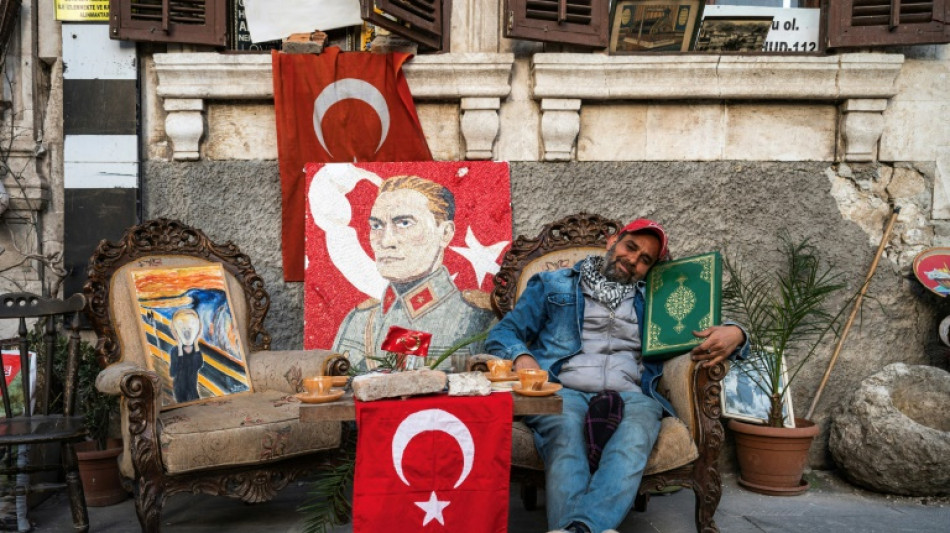
-
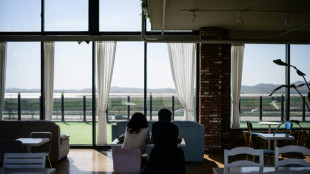 Bunker-cafe on Korean border paints image of peace
Bunker-cafe on Korean border paints image of peace
-
Tunics & turbans: Afghan students don Taliban-imposed uniforms
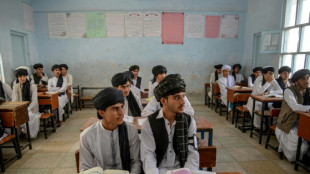
-
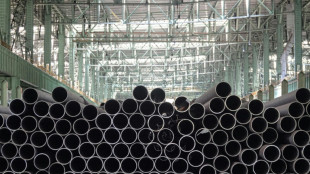 Asian markets struggle as trade war hits China factory activity
Asian markets struggle as trade war hits China factory activity
-
Norwegian success story: Bodo/Glimt's historic run to a European semi-final

-
 Spurs attempt to grasp Europa League lifeline to save dismal season
Spurs attempt to grasp Europa League lifeline to save dismal season
-
Thawing permafrost dots Siberia with rash of mounds
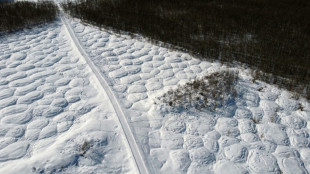
-
 S. Korea prosecutors raid ex-president's house over shaman probe: Yonhap
S. Korea prosecutors raid ex-president's house over shaman probe: Yonhap
-
Filipino cardinal, the 'Asian Francis', is papal contender
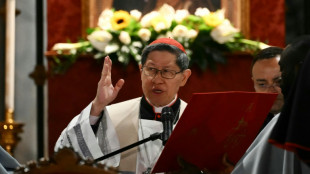
-
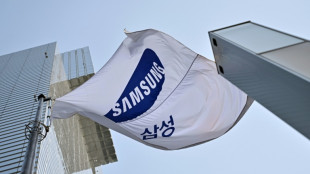 Samsung Electronics posts 22% jump in Q1 net profit
Samsung Electronics posts 22% jump in Q1 net profit
-
Pietro Parolin, career diplomat leading race to be pope
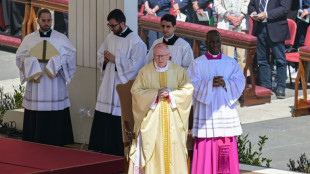
-
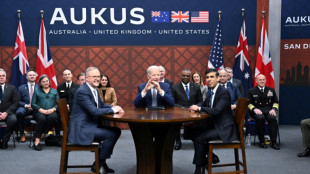 Nuclear submarine deal lurks below surface of Australian election
Nuclear submarine deal lurks below surface of Australian election
-
China's manufacturing shrinks in April as trade war bites
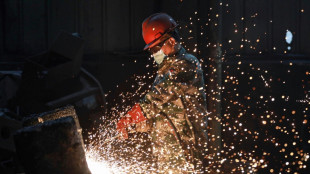
-
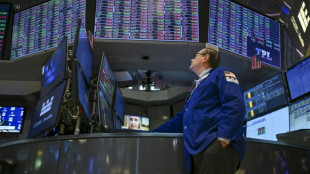 Financial markets may be the last guardrail on Trump
Financial markets may be the last guardrail on Trump
-
Swedish journalist's trial opens in Turkey

-
 Kiss says 'honour of a lifetime' to coach Wallabies at home World Cup
Kiss says 'honour of a lifetime' to coach Wallabies at home World Cup
-
US growth figure expected to make for tough reading for Trump
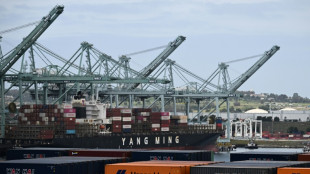
-
 Opposition leader confirmed winner of Trinidad elections
Opposition leader confirmed winner of Trinidad elections
-
Snedeker, Ogilvy to skipper Presidents Cup teams: PGA Tour

-
 Win or bust in Europa League for Amorim's Man Utd
Win or bust in Europa League for Amorim's Man Utd
-
Trump celebrates 100 days in office with campaign-style rally

-
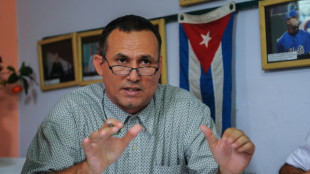 Top Cuban dissidents detained after court revokes parole
Top Cuban dissidents detained after court revokes parole
-
Arteta urges Arsenal to deliver 'special' fightback against PSG

-
 Trump fires Kamala Harris's husband from Holocaust board
Trump fires Kamala Harris's husband from Holocaust board
-
Pakistan says India planning strike as tensions soar over Kashmir attack
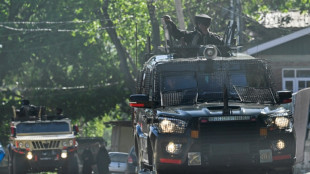
-
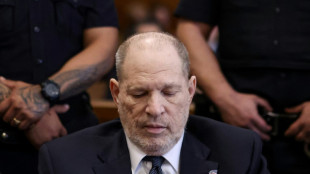 Weinstein sex attack accuser tells court he 'humiliated' her
Weinstein sex attack accuser tells court he 'humiliated' her
-
France accuses Russian military intelligence over cyberattacks
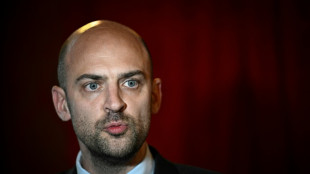
-
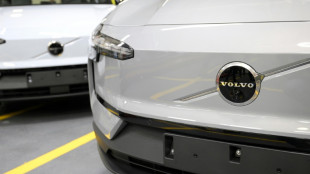 Global stocks mostly rise as Trump grants auto tariff relief
Global stocks mostly rise as Trump grants auto tariff relief
-
Grand Vietnam parade 50 years after the fall of Saigon

-
 Trump fires ex first gentleman Emhoff from Holocaust board
Trump fires ex first gentleman Emhoff from Holocaust board
-
PSG 'not getting carried away' despite holding edge against Arsenal

-
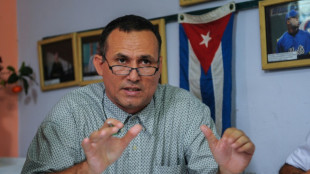 Cuban dissidents detained after court revokes parole
Cuban dissidents detained after court revokes parole
-
Sweden stunned by new deadly gun attack
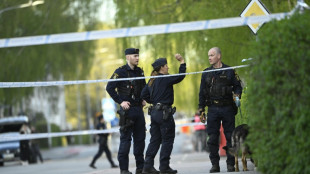
-
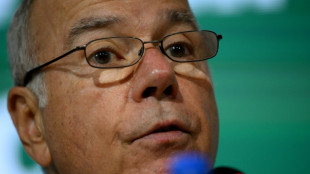 BRICS blast 'resurgence of protectionism' in Trump era
BRICS blast 'resurgence of protectionism' in Trump era
-
Trump tempers auto tariffs, winning cautious praise from industry
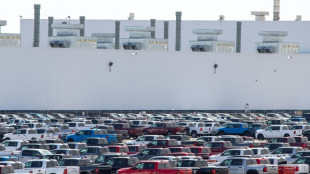
-
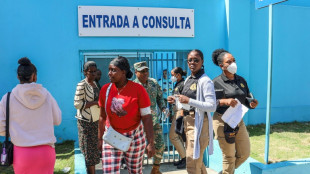 'Cruel measure': Dominican crackdown on Haitian hospitals
'Cruel measure': Dominican crackdown on Haitian hospitals
-
'It's only half-time': Defiant Raya says Arsenal can overturn PSG deficit
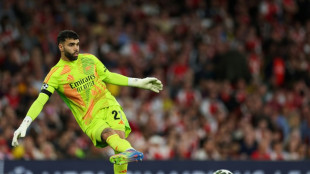
-
 Dembele sinks Arsenal as PSG seize edge in Champions League semi-final
Dembele sinks Arsenal as PSG seize edge in Champions League semi-final
-
Les Kiss to take over Wallabies coach role from mid-2026

-
 Real Madrid's Rudiger, Mendy and Alaba out injured until end of season
Real Madrid's Rudiger, Mendy and Alaba out injured until end of season
-
US threatens to quit Russia-Ukraine effort unless 'concrete proposals'
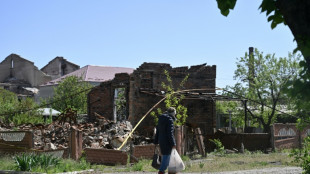
-
 Meta releases standalone AI app, competing with ChatGPT
Meta releases standalone AI app, competing with ChatGPT
-
Zverev crashes as Swiatek scrapes into Madrid Open quarter-finals

-
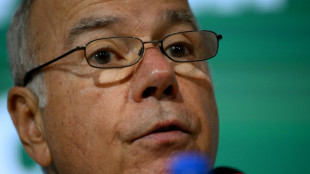 BRICS members blast rise of 'trade protectionism'
BRICS members blast rise of 'trade protectionism'
-
Trump praises Bezos as Amazon denies plan to display tariff cost

-
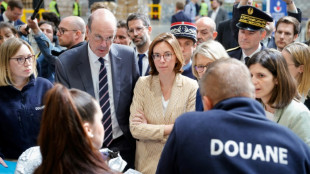 France to tax small parcels from China amid tariff fallout fears
France to tax small parcels from China amid tariff fallout fears
-
Hong Kong releases former opposition lawmakers jailed for subversion
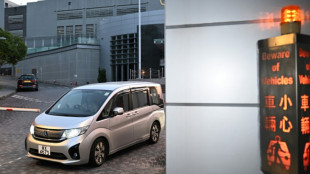
-
 Trump celebrates tumultuous 100 days in office
Trump celebrates tumultuous 100 days in office
-
Sweden gun attack leaves three dead
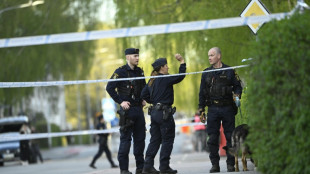
-
 Real Madrid's Rudiger banned for six matches after Copa final red
Real Madrid's Rudiger banned for six matches after Copa final red
-
Firmino, Toney fire Al Ahli into AFC Champions League final


Antique shop's defiance brings hope to Turkish quake zone
The sounds of music waft in from the antique shop, where Turkish flags hang defiantly, bringing hope to the earthquake-ravaged city of Antakya as it mourns its dead.
The fabled city, historically known as Antioch, and tucked between the Mediterranean Sea and Turkey's border with Syria, bore the brunt of a 7.8-magnitude earthquake on February 6 that killed more than 50,000 people.
The domes of its mosques and churches lie in pieces across the ghostly city, which straddles one of the world's most active fault lines and has risen like a phoenix from similar disasters over the centuries.
If it does so again, it will be in no small part thanks to persevering residents such as Serkan Sincan.
Lounging in one of two upholstered armchairs he set up on the pavement next to a coffee table, the 51-year-old embodies Turkish resilience in the face of the country's worst natural disaster of modern times.
When the ground began to convulse at 4:17 am, Sincan managed to get his mother and father out of their flat, move them in a safer city nearby and then help neighbours out of their houses.
"On the third day, I came here and unfolded the big flag first," Sincan told AFP.
"It was raining. I saw a friend on the way, he said 'Serkan, your antique shop is down'. I said 'Ok, I will see'. As I was walking, I saw the Ulu Mosque had crumbled, the protestant church was down, everything was down," he recalled.
"Then I saw my building."
-'Prayers stopped'-
It was still standing, suffering only a few cracks in its walls. Some of the shop's plates broke and some of the books scattered across the floor.
"But the house was still standing and I said to myself: Allahu akbar' (God is the greatest)."
Sincan, who quit his job at the city's municipality almost five years ago because "I didn't like the system", describes himself as an "Islamic socialist".
Upset that daily calls to prayer issued by muezzins fell silent after the earthquake, he began walking the apocalyptic streets and singing them himself.
"Prayers stopped in Antakya. The muezzins ran away, they left the house of God," he said.
"I am sleeping in this building. I am making the call to prayer. People say I am crazy".
Clearly, not everyone does.
Last week, workers rigged up an emergency power line to his shop so that he could play his music -- everything from opera and Turkish ballads to old Pink Floyd songs.
- 'Gave me hope' -
"This is our routine. In the past, my customers knew that I played cassettes and records. This is how my shop works," he said.
Now, after clearing up his street and setting up his lounge chairs, he serves coffee and treats whoever stops by his shop -- mostly volunteers, municipal workers and charity organisers who flocked to Antakya after the quake.
Ozge Eser, a teacher whose building collapsed, said the sight of Sincan's open shop gladdened her.
"I came here a day before the quake. I bought a child development book and a legal book for my brother, who is a lawyer," she said.
"I was very happy to see it's open. It really gave me hope at a time when I lost my hope."
The portrait of Turkey's founder Mustafa Kemal Ataturk hangs on the shop's front wall.
Ataturk wanted the city's Hatay province to become part of Turkey after the country's post-Ottoman war of independence 100 years ago.
The province was fully annexed in 1939, a year after Ataturk's death, with the last vestiges of its French mandate authorities leaving.
Echoing President Recep Tayyip Erdogan's pledge to rebuild the entire earthquake region within a year, Sincan sounded certain that Antakya would soon return to glory.
"One or one-and-a-half years from now, the old Antakya will be much nicer and much better," he said.
O.Karlsson--AMWN